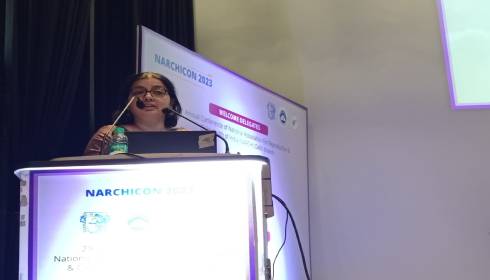
0% of Women Delay Breastfeeding Within the First Hour of Birth
A startling data reveals that a significant 40% of women in India do not initiate breastfeeding for their babies within the crucial first hour of birth, posing potential risks to infant health. Breastfeeding, often referred to as the first vaccine, is vital for the immediate health and future well-being of newborns. Delaying this process increases the likelihood of infants facing higher risks of mortality and disease, while also diminishing the probability of sustained breastfeeding.
Dr. Zoya Ali Rizvi, Deputy Commissioner of Adolescent Health at the Union Health Ministry, shared this concerning statistic based on the latest National Health and Family Survey during the National Association for Reproductive & Child Health Care of India conference at Lady Hardinge Medical College (LHMC).
The World Health Organization (WHO) underscores the critical importance of newborns breastfeeding within the first hour of life, as it significantly enhances their chances of survival.
Even a slight delay after birth can result in life-threatening consequences. The skin-to-skin contact during breastfeeding stimulates the mother's milk production, including colostrum, often referred to as the baby's 'first vaccine,' due to its richness in nutrients and antibodies.
Professor Manju Puri, Director Professor and Former Head of the Department of Obstetrics & Gynecology at LHMC, highlighted factors contributing to the low breastfeeding rates in India. Lack of awareness plays a major role, compounded by the rising rate of cesarean sections, where mothers are often given anesthesia, hindering immediate breastfeeding.
Prof. Puri emphasized the need to discourage the use of gripe water and honey as immediate drinks, as they contribute to keeping mothers and babies separate, leading to missed opportunities for immediate breastfeeding.
Stressing the importance of keeping mother and baby together after delivery, regardless of the delivery method, Prof. Puri advocated for greater awareness and education on the significance of immediate breastfeeding.
Under the Quality Improvement (QI) project at Lady Hardinge Medical College, measures are being implemented to enhance immediate breastfeeding, such as placing the baby on the mother's chest after cesarean section deliveries. Prof. Puri highlighted additional steps, including weighing the baby after this crucial initial contact, to improve overall breastfeeding practices. The aim is to promote immediate breastfeeding, ensuring a healthy start for infants and fostering continued exclusive breastfeeding for the first six months of life